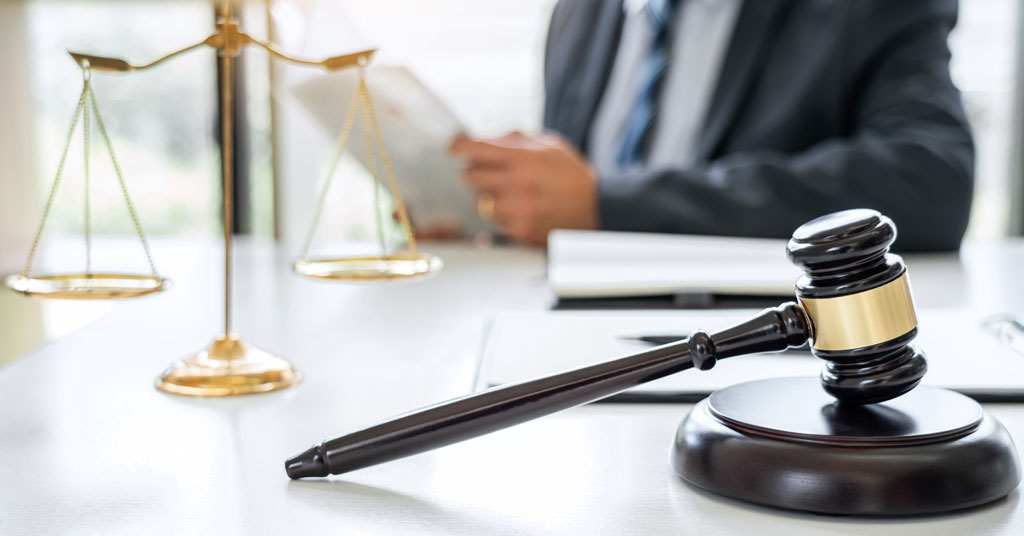Practical Strategies To Limit Premises Liability Claims Involving Covid-19

Franchise businesses that open their doors to customers, guests, and other visitors during the pandemic must be vigilant, not only to keep their premises safe to those who enter, but also to avoid lawsuits by individuals who claim they contracted Covid-19 on a business premise.
The legal landscape surrounding such claims is still somewhat uncertain. Plaintiffs are just beginning to test potential legal theories in this specific context and, with congressional negotiations regarding the next coronavirus stimulus package at a current impasse, the availability of a federal immunity remains unknown. This article describes the current legal landscape, including potential claims that could arise and the current scope of immunity laws, and offers best practices that franchisees and franchisors (with company-owned stores or who are sued in a direct or vicarious liability case) should consider for limiting Covid-related claims based on alleged infection on a franchised business’s premises.
Claims that may arise
A plaintiff who claims to contract Covid-19 on a franchised business’s premises is most likely to assert a type of negligence claim called premises liability. Premises liability law varies by jurisdiction, but in general, a plaintiff would have to prove that: 1) Covid-19 infection posed an unreasonable risk of harm on the premises; 2) the business premises owner had notice of the risk; 3) the owner failed to make the premises reasonably safe; and 4) the plaintiff was injured as a result. Depending upon the jurisdiction, plaintiffs may also assert negligence per se, arguing that the defendant violated a statute, rule, or regulation related to Covid-19 and the plaintiff contracted the illness as a result.
Plaintiffs are also testing the boundaries of other, less obvious theories, such as public nuisance, which has already been asserted by employees who claim to have contracted Covid-19 at their workplace. A public nuisance is generally defined as an unreasonable interference with a right common to the general public. Public nuisance claims traditionally focused on an alleged interference with the use of land, but in recent decades plaintiffs have pushed the boundaries of public nuisance claims, with mixed rates of success, to address alleged injuries related to asbestos, firearms, climate change, tobacco, and opioids, among other things. Plaintiffs are now apparently trying to further stretch the bounds of public nuisance jurisprudence to include the Covid-19 crisis, as well.
The legal standards for these claims vary by jurisdiction, but in most cases the defense of these claims will focus in large part on whether the business complied with applicable federal, state, and local guidelines related to Covid-19. These guidelines will likely inform the reasonableness standard of premises liability and nuisance claims and may form the basis for a negligence per se and other tort claims.
The causation element of these claims will pose a major hurdle for most plaintiffs, who will be hard-pressed to prove that they contracted Covid-19 on the premises. In most circumstances, the plaintiff may need to negate one or more other potential sources of infection outside the business premises where the plaintiff could have contracted the disease. This burden is further increased by the current understanding that the disease could be transmitted by non-symptomatic persons, and that the latency period of the disease is currently understood to vary from 2 to 14 days.
In other words, the plaintiff may need to show that they were not exposed to any source of infection outside the business premises in the 14 days preceding infection. Note, however, that some jurisdictions may apply a lower causation standard to nuisance claims than other traditional tort claims, so defendants must be prepared with a multi-pronged defense to such claims. Improvements in genetic testing and sequencing, applied to the coronavirus, may help a defendant prove that a plaintiff was not exposed to the virus on its premises, but such improvements could also help a plaintiff identify the source of their infection.
Current scope of immunity laws
Senate Majority Leader Mitch McConnell has pushed for inclusion of a broad business immunity against Covid-19 claims in the next coronavirus stimulus package. But to date, negotiations have been unsuccessful, and no such federal immunity exists. Businesses must therefore rely on the patchwork of state laws for immunity.
At least a dozen states (including Utah, Wyoming, Kansas, Iowa, Oklahoma, Arkansas, Louisiana, Mississippi, Alabama, North Carolina, Georgia, and Nevada) have passed legislation or signed executive orders providing broad immunity for Covid-related claims, such as the ones described in this article. Other states (including at least Ohio, Illinois, Massachusetts, New Jersey, New York, and Arizona) are considering similar legislation. The Ohio legislature has passed such a bill, and the bill is anticipated to be signed into law in the near future.
Some state immunity laws are expressly tied to compliance with applicable guidance from federal, state, and local health officials. Therefore, franchise businesses should carefully document their efforts to comply with applicable standards. None of these immunities is absolute. In most states, for example, the immunity does not apply to willful, reckless, or intentional conduct or to gross negligence.
Regardless of the existence of immunity laws – whose scope is still uncertain and not absolute – franchised businesses should consider implementing the following strategies to defend against potential claims that an individual contracted Covid-19 on their premises.
1) Implement and enforce written coronavirus safety policies in compliance with applicable guidance. As noted above, a claim involving alleged contraction of Covid-19 on business premises will likely focus, in large part, on whether the defendant complied with applicable federal, state, and local guidance for limiting the spread of coronavirus infection. Where the business premises owner makes good faith efforts to implement and enforce safety measures to control the infection in their premises, it will likely be difficult for plaintiffs to prove their case. Accordingly, and while being ever mindful not to create a joint-employer relationship, franchisors should remind franchisees to review and comply with the applicable Covid-19 guidance from federal, state, and local sources (e.g., CDC, OSHA, and state and county health department websites).
Franchisees and franchisors with company-owned stores should strive to implement the coronavirus safety guidance applicable to their jurisdiction. In that regard, some state OSHA programs have adopted (or are in the process of adopting) coronavirus-specific safety standards for maintaining safe premises. Franchised businesses in those states should ensure compliance with these standards.
In addition, if a franchise system has certain safety and cleaning practices as part of its system standards that are in line with applicable federal, state, and local guidance for limiting the spread of Covid, the franchisor should consider highlighting those practices to the franchisees. Franchisors should also alert their franchise systems to implement the jurisdictional guidance for Covid-19 in conjunction with the “obey all laws” provisions in their franchise agreements.
Among other things, franchise premises owners must have written safety policies in place, which should be updated to stay current with the applicable guidance from federal, state, and local governments. To ensure that, franchised businesses should designate one or more persons to monitor changes in the applicable guidance. The safety policy must be communicated to employees, who should be trained to follow the rules to limit the spread of coronavirus infection in the premises as per the guidance.
For franchised businesses operating in industries where specific guidance is not available, franchisees and franchisors should be mindful of the safety standards adopted by the other businesses in their industry. Franchised businesses should also stay abreast of the successes and failures of various safety controls employed in their industry and adapt their safety policies accordingly.
Note: In implementing the various safety controls, franchised business premises owners should be mindful to stay in compliance with various state and federal privacy and discrimination laws.
2) Implement exposure response procedures to handle any incidence of coronavirus infection in the premises. In addition to safe practices to limit the coronavirus infection in the premises, a franchised business owner’s duty of care may include having procedures in place to handle any confirmed or suspected case of the disease in the premises, consistent with the applicable guidance, including closing off areas used by the person who has been or is suspected to be exposed to coronavirus, cleaning and disinfecting those areas, and performing contact tracing to identify other persons at the premises who also may have been exposed. Franchisees and franchisors with company-owned stores should have a written coronavirus exposure plan in place to address any incidents of infection in the premises and continued safety of all persons in the premises.
3) Require third parties at the premises to comply with the business premises’ coronavirus safety policy. Franchised businesses should require third parties such as customers, clients, and contractors present in the premises to follow the business’ coronavirus safety rules. Among other things, franchised businesses should require all visitors in the premises to wear a face mask. Additionally, franchised businesses should seek assurance, in writing, from contractors that their employees will comply with the coronavirus safety rules while at the premises.
4) Document compliance with and enforcement of the coronavirus safety policy in the premises. Franchised businesses should carefully document their coronavirus safety policies (including updated versions over time); efforts to train employees and contractors regarding the policies; and enforcement of the policies. Franchised businesses should also maintain documentation reflecting governmental and/or industry standards related to coronavirus prevention. It is important to maintain date-stamped versions of all such internal and external documents, which will inevitably change over time as additional information about the virus becomes available. To the extent that it is infeasible to implement any applicable safety guidance, businesses must document steps taken to attempt to implement such measures, reasons for infeasibility, alternative means of protection explored by the business, and any alternative safety means implemented. Such documents could be critical, not only to defeat a claim of breach of duty of care, but also to serve as strong evidence to counter an argument that the premises owner’s failure to comply with the applicable safety guidance caused the plaintiff’s disease.
Regarding the causation element, a defendant premises owner may defend against it, at least in part, by showing evidence of compliance with the applicable coronavirus safety rules in its premises during the past 14 days, evidence that no person with symptoms of coronavirus infection was allowed access to the business premises during the 14-day period, and evidence that there were no known instances of infection during that time period. To the extent there were any instances of infection at the premises, the franchised businesses should have documentation to show how such instances were handled in a safe manner, consistent with applicable guidance, to prevent exposure of persons like the plaintiff. In that regard, and to the extent appropriate under the circumstances, care should be taken to preserve privilege of any root cause investigation of the cause of any coronavirus case in the premises.
5) Obtain written waivers of liability and indemnification agreements. All third parties entering the franchised premises should be informed, in writing, that while the safety measures may limit the exposure to coronavirus infection, they are not a guarantee against exposure. Franchisees and franchisors with company-owned stores should consider having third parties sign a waiver of liability related to potential coronavirus-related claims. While the enforceability of such a waiver may vary by jurisdiction, the waiver may serve as evidence that the party had notice of the potential risk of exposure to coronavirus infection and assumed the risk of exposure before entering the premises.
In addition, contractors of the premises owner should be provided written notice that the franchise business premises owner takes no responsibility for the safety of employees of contractors, and that the safety of these persons is the responsibility of the contractor. Franchisees and franchisors with company-owned stores should consider requiring contractors to agree in writing that the contractors will indemnify them for any coronavirus-related claims by the contractor’s employees.
6) Franchisors should ensure that their franchisees have adequate insurance coverage for any vicarious liability claims asserted against them. While franchisors will typically not be sued for premises liability claims, if a franchisor is included in a claim involving a franchisee’s premises, the franchisor must ensure that they have current copies of the franchisee’s insurance policies and that the franchisor is included as an additional named insured on those policies. Insurance coverage counsel can evaluate whether the current insurance is adequate under these circumstances.
7) Consider removal of lawsuit to federal court. Some businesses facing coronavirus lawsuits in state courts are removing cases to federal court based on diversity jurisdiction or federal question jurisdiction allegedly arising from federal OSHA or other directives central to plaintiff’s claims. Generally, considering the higher pleading standard and stringent discovery rules in federal courts as compared with state courts, franchised business premises owners facing coronavirus lawsuits should consider whether removal to federal court would be prudent in their specific circumstances.
Please note that each franchise system is different, and franchisees should review the applicable franchise documents to ensure all practices conform to the franchise system standards. In addition, employers have specific obligations to their employees related to workplace safety. Please consult your legal counsel to properly address these issues.
All authors are attorneys at Haynes and Boone. Michelle Jacobs, a Partner in the Dallas office, focuses on complex commercial and intellectual property litigation in state and federal courts, and can be reached at [email protected]. Deborah Coldwell, a Partner in the Dallas office, represents franchisors, distributors, joint ventures, limited liability companies, partnerships, and the individuals who run those companies, and can be reached at [email protected]. Mini Kapoor, an Associate in the Houston office, has wide-ranging litigation experience in commercial, labor and employment, and intellectual property matters, and can be reached at [email protected]. Sally Dahlstrom, an Associate in the Dallas office, focuses on complex commercial litigation matters including franchise and distribution networks, and can be reached at [email protected].
Share this Feature
Recommended Reading:
| ADVERTISE | SPONSORED CONTENT |
FRANCHISE TOPICS
- Multi-Unit Franchising
- Get Started in Franchising
- Franchise Growth
- Franchise Operations
- Open New Units
- Franchise Leadership
- Franchise Marketing
- Technology
- Franchise Law
- Franchise Awards
- Franchise Rankings
- Franchise Trends
- Franchise Development
- Featured Franchise Stories
| ADVERTISE | SPONSORED CONTENT |








 The franchise listed above are not related to or endorsed by Franchise Update or Franchise Update Media Group. We are not engaged in, supporting, or endorsing any specific franchise, business opportunity, company or individual. No statement in this site is to be construed as a recommendation. We encourage prospective franchise buyers to perform extensive due diligence when considering a franchise opportunity.
The franchise listed above are not related to or endorsed by Franchise Update or Franchise Update Media Group. We are not engaged in, supporting, or endorsing any specific franchise, business opportunity, company or individual. No statement in this site is to be construed as a recommendation. We encourage prospective franchise buyers to perform extensive due diligence when considering a franchise opportunity.